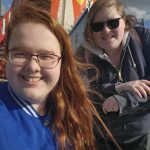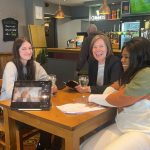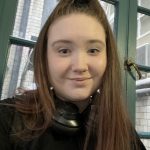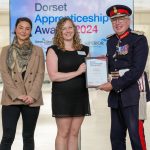 Produced by Guest blogger
Produced by Guest blogger
Emily Dalton graduated from BU in 2018 with a BSc (Hons) Biological Sciences degree and is now in her second year of a graduate scheme with GlaxoSmithKline. Read her guest blog post to hear all about her experiences at BU and beyond!
Before coming to BU, I was pretty sure that I wanted to end up with a career in biomedical research – I didn’t know what area of biomedical research, but I hoped that my degree would help me to figure that out.
I had a great time studying Biological Sciences at BU – The best thing about my course was being able to choose to study biological modules I was really interested in and being encouraged by lecturers to read more into subjects than what our exams required. Our lecturers were good at not just teaching us the facts we needed to pass, but also giving us context based on current research of how biological concepts translate into real world examples. BU lecturers don’t just want students to learn facts to pass exams, but instead they focus on preparing us to think more laterally and apply our knowledge.
In my second year at BU, one of the modules that I chose to study was ‘Introduction to Toxicology’. It was whilst studying this module that I discovered a fascination with pharmacology and the range of effects that medicines can have on the body, and I think this helped to focus my aspirations on pursuing a career in pharmaceutical research and development.
As soon as I returned for final year, I started sending off applications for R+D graduate schemes/jobs at every pharma company possible (it was honestly a full-time job). I successfully made my way through the stages of GlaxoSmithKline’s graduate scheme application, and in Spring got the call to say that I had been offered a place on the Pharmacovigilance Future Leaders Programme.
I am currently in my second year of the 3-year long pharmacovigilance graduate scheme. The scheme is made up of various rotations within different teams, which is great for gaining a broad understanding of my specialism. Essentially, the role of pharmacovigilance (a.k.a drug safety) involves monitoring, evaluating and communicating the side effects reported with the use of GSK medicines, with the main goal of ensuring that the benefit-risk profile of our medicines remains favourable for consumers. My role is entirely office based, which I love – I don’t think many people realise that you can be an R+D Scientist and not work in the lab, so I would say don’t worry if lab work isn’t your cup of tea!
The thing I love most about my job is how patient focused it

is, as the sole purpose of pharmacovigilance is to make sure our medicines are safe for consumer use. Also, it’s cool being able to use the scientific knowledge I gained in my degree to better understand how our big-name medicines work, and the range of effects they have on the body – it’s been a steep learning curve, but I’m loving the challenge. I am currently the youngest person in my department (~350 staff), which I feel has pushed me more to prove myself and my abilities. I am really proud to have received 10 Global Employee Recognition awards in 2019 (some including bonuses) for my work on a variety of projects – the hard work is definitely paying off!
BU prepared me for work in ways I could have never predicted. When you go into a degree, you assume it will just be the facts you take away, but the skills I learnt at BU have been just as useful in my job.
In terms of job-hunting advice, my tip to current/prospective students would be to be organised and start early. Many graduate schemes/roles will open for applications in the autumn of your final year (almost a year before you’re due to start the role); because of this, it’s really important to research beforehand and have an idea of the types of companies you’re interested in applying to so you’re ahead of the game when roles open. For other graduates that are still searching, I would say a proactive approach is key to keeping motivated; build your network (LinkedIn is great for this), attend career events, and ask for feedback after EVERY application process.
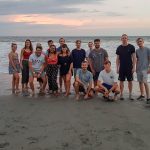 Why study BSc (Hons) Geography at BU
Why study BSc (Hons) Geography at BU From BU student to Assistant Meteorologist – graduate Becky tells us of her experiences
From BU student to Assistant Meteorologist – graduate Becky tells us of her experiences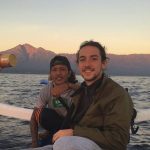 From Bournemouth to Bali: Zach’s prize-winning placement
From Bournemouth to Bali: Zach’s prize-winning placement


